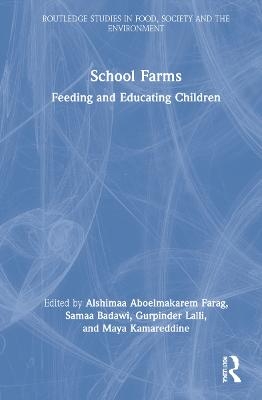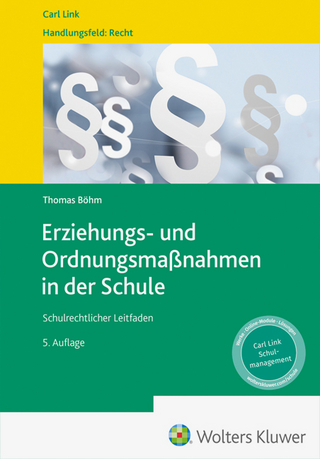
School Farms
Routledge (Verlag)
978-1-032-00961-2 (ISBN)
This book highlights the potential of school farms to fight hunger and malnutrition by providing access to locally produced, fresh, and healthy food as well as providing young students with educational opportunities to learn, interact with nature, and develop their skills.
Hunger is one of the most pressing concerns we face today and there is a clear need to provide alternative sources of food to feed a fast-growing population. School farms offer a sustainable opportunity to produce food locally in order to feed underprivileged students who rely on school meals as an integral part of their daily diet. Approaching the concept of school farms through four themes, Problem, People, Process, and Place, the book shows how they can play an essential role in providing sustainable and healthy food for students, the critical role educational institutions can play in promoting this process, and the positive impact hands-on farming can have on students' mental and physical wellbeing. Utilizing the authors' personal hands-on experiences, and drawing on global case studies, the book provides a theoretical framework and practical guidance to help with the establishment of school farms and community-based gardening projects and an education system which promotes a sustainable and healthy approach to food, agriculture, and the environment.
This book will be essential reading for students and scholars of food security, agriculture, healthy and sustainable diets, education for sustainable development, and urban studies. It will also be of great interest to practitioners and policymakers involved in food policy, developing school and community projects, global health and international development, as well as education professionals.
Alshimaa Aboelmakarem Farag is a researcher, educator, and urban designer, who has a special passion for creating public spaces that are smart, inclusive, livable, healthy, and people oriented. She is Assistant Professor at Zagazig University, Egypt. Her most recent book is Humanizing Cities Through Car-Free City Development and Transformation (2020). Samaa Badawi is Associate Professor of Architecture and Urban Design at Mansoura University, Egypt. She has worked in both the academic and research fields for 18 years where her interest lies in livable cities, human-friendly urban environments, and urban conservation. Gurpinder Lalli is Senior Lecturer in Education and Inclusion Studies at the University of Wolverhampton, UK. He is the author of Schools, Food and Social Learning (Routledge, 2019). Maya Kamareddine is Lecturer of Architecture at Effat University, College of Architecture and Design, Saudi Arabia.
Introduction Part 01. Problem-Focused Perspective Chapter 1. Food Education and Food for Life Chapter 2. The Impacts of Hunger on Children and Adolescents: School Farming as a Panacea Chapter 3. Fighting with Malnutrition and Reaching Sustainable Development Goals through School Farming (Need Felt during COVID 19 Situation) Part 02. People-Focused Perspective Chapter 4. The School Farms Network in the UK Chapter 5. Foodways, Farm, and Ecology Chapter 6. Psychological Benefits of School Farms to Students Chapter 7. Harithalayam Campus Farming Mission Part 03. Process-Focused Perspective Chapter 8. How do Children and Youth learn through Farming and Gardening Activities? Chapter 9. Using the Outdoors to Enhance Learning Experiences at Secondary School Chapter 10. Working Towards the Garden Part 04. Place-Focused Perspective Chapter 11. The School as a Potential Resource for the Transformation of the Territory Chapter 12. School Roof Farms Chapter 13. Building Community Resilience Chapter 14. Inclusive Learning School Farm Environment Conclusion, Closing Thoughts, and Future Directions
| Erscheinungsdatum | 30.11.2021 |
|---|---|
| Reihe/Serie | Routledge Studies in Food, Society and the Environment |
| Zusatzinfo | 11 Tables, black and white; 14 Line drawings, black and white; 17 Halftones, black and white; 31 Illustrations, black and white |
| Verlagsort | London |
| Sprache | englisch |
| Maße | 156 x 234 mm |
| Gewicht | 585 g |
| Themenwelt | Sozialwissenschaften ► Pädagogik ► Bildungstheorie |
| Technik ► Umwelttechnik / Biotechnologie | |
| Weitere Fachgebiete ► Land- / Forstwirtschaft / Fischerei | |
| ISBN-10 | 1-032-00961-6 / 1032009616 |
| ISBN-13 | 978-1-032-00961-2 / 9781032009612 |
| Zustand | Neuware |
| Informationen gemäß Produktsicherheitsverordnung (GPSR) | |
| Haben Sie eine Frage zum Produkt? |
aus dem Bereich


